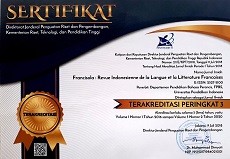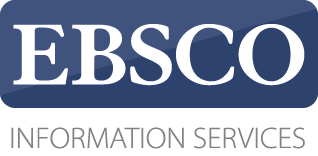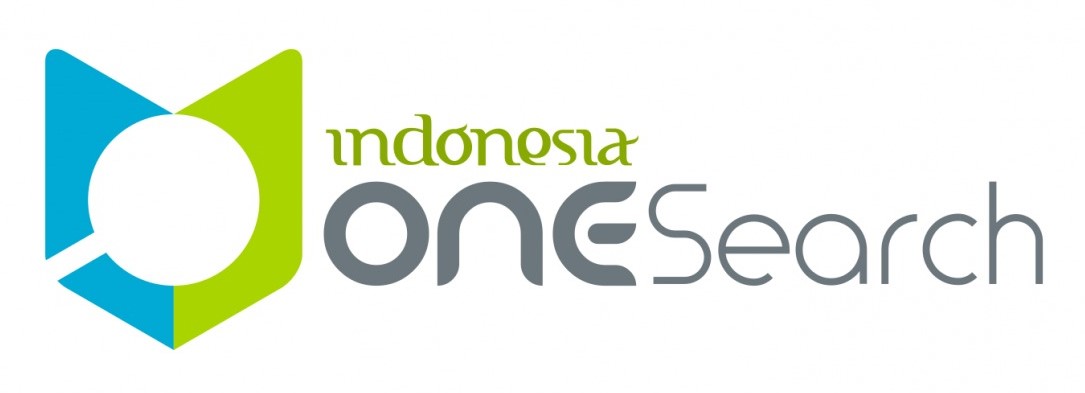The relationship between digital competence and french learning outcomes in children
Abstract
Technology in education, including language learning, is booming. Digital competence is essential if teachers are to integrate technology effectively and improve language teaching. It provides access to authentic materials, interactive exercises and collaborative opportunities. However, integrating technology poses challenges for teachers. This empirical research aims to investigate the relationship of digital competence with language learning outcomes in the context of smart education, which integrates sustainable practices and digital technologies into language teaching. To this end, we used a questionnaire to assess the level of teachers' and children's knowledge of digital tools and their role in the French language teaching/learning process. 40 persons (20 teachers and 20 learners) made up our case study. All participants came from the Ghotb Ravandi institute and had a language level of A1-B1. A comparative analysis demonstrated the significant effect of this skill on children's performance.
Keywords : children’s learning; digital competence; education; French learning; technology
References
Curtis, D., Brown, K., Baird, L., & Coughlin, M. (2015). Lively minds at play: Planning environments and materials that support the way young children learn. In H. Bohart, K. Charner & D. Koralek (Eds.), Spotlight on young children: Exploring play (pp. 17–25). NAEYC.
Cerisier, J. F., Rizza, C., Devauchelle, B., & Nguyen, A. (2008). Training young people in the use of digital media: The highs and lows of establishing the Information Technology and Internet Proficiency Certificate (B2i) in France. Distances et savoirs, 6.
Erskine, M. A., Gregg, D. G., Karimi, J., & Scott, J. E. (2019). Individual decision-performance using spatial decision support systems: a geospatial reasoning ability and perceived task-technology fit perspective. Information Systems Frontiers, 21, 1369-1384.
Halpenny, A. M, & Pettersen, J. (2013). Introducing piaget: a guide for practitioners and students in early years education. Routledge.
Hargraves, V. (2021). Piaget’s theory of education. https://theeducationhub.org.nz/piagets-theory-of-education/
Howard, S. K., Tondeur, J., Ma, J., & Yang, J. (2021). What to teach? Strategies for developing digital competency in preservice teacher training. Computers & Education, 165, 104149.
Mooney, C. G. (2013). Theories of childhood, second edition: an introduction to Dewey, Montessori, Erikson, Piaget & Vygotsky. Redleaf Press.
Penuel, W.R. (2006). Implementation and effects of one-to-one computing initiatives: a research synthesis. Journal of Research on Technology in Education, 38(3), 329-348. Retrieved January 21, 2025 from https://www.learntechlib.org/p/99387/.
Põldoja, H., Väljataga, T., Laanpere, M., & Tammets, K. (2014). Web-based self-and peer-assessment of teachers’ digital competencies. World Wide Web, 17, 255-269.
Saxena, A., Kwan Lo, C., Foon Hew, K., & Ka Wai Wong, G. (2020). Designing unplugged and plugged activities to cultivate computational thinking: An exploratory study in early childhood education. Asia-Pacific Education Resource, 29(1), 55–66.
SILVA, K. K. A. D., & Behar, P. A. (2019). Digital competences in education: a discussion of the concept. Educação em Revista, 35, e209940.
Wolniak, R., & Grebski, W. (2023). The concept of diagnostic analytics. Zeszyty Naukowe. Organizacja i Zarządzanie/Politechnika Śląska. Scientific Papers of Silesian University of Technology Organization and Management Series.
DOI: https://doi.org/10.17509/francisola.v10i1.80987
Refbacks
- There are currently no refbacks.
Copyright (c) 2025 FRANCISOLA

This work is licensed under a Creative Commons Attribution-ShareAlike 4.0 International License.
View My Stats











